We broke the story on the activities of Michael Spitzer-Rubenstein during the Green Bay election in November 2020.
Several prominent Republican state senators are calling for an investigation into the City of Green Bay’s handling of the November 2020 election, focusing in part on the activities of a liberal operative working for a group that partners with a Mark Zuckerberg-funded organization that gave massive election-related grants to five counties.
We broke the story on the activities of Michael Spitzer-Rubenstein in November 2020. You can see our earlier reporting later in this article.
We revealed then that Brown County’s elected County Clerk had expressed concern to the Wisconsin Election Commission on election day that the City of Green Bay’s Central Count process, where absentee ballots were counted, was “tainted.” The City of Green Bay has defended its election process.
Her email to the Commission, which Wisconsin Right Now exclusively obtained, focused on Spitzer-Rubenstein, who was working on election day in Brown County for a non-profit with high-profile Democrats on its board – including a member of the Kennedy family – and ties to the group that received the massive, controversial Zuckerberg-related grant received by the city. In an interview with Wisconsin Right Now, she and two Republican election observers also raised concern about the actions that night of Amaad Rivera-Wagner, a community liaison worker for the Democratic mayor of Green Bay who also was at Central Count.
Large grants funded in part by Facebook and Google sent operatives to Wisconsin to work on elections, and the Brown County activities took place against that larger backdrop. The City of Green Bay – and four other large cities in Wisconsin – received a large grant (more than $1 million in Green Bay’s case) from the Center for Tech and Civic Life. Opponents sued, saying the grants inequitably went only to Democratic strongholds but didn’t prevail in court.
The Green Bay mayor touted this grant before the election, saying that, in part, it would pay for “vote navigators” to get people to the polls who don’t normally vote. Google and Facebook are among the funders of the Center for Tech and Civic Life.
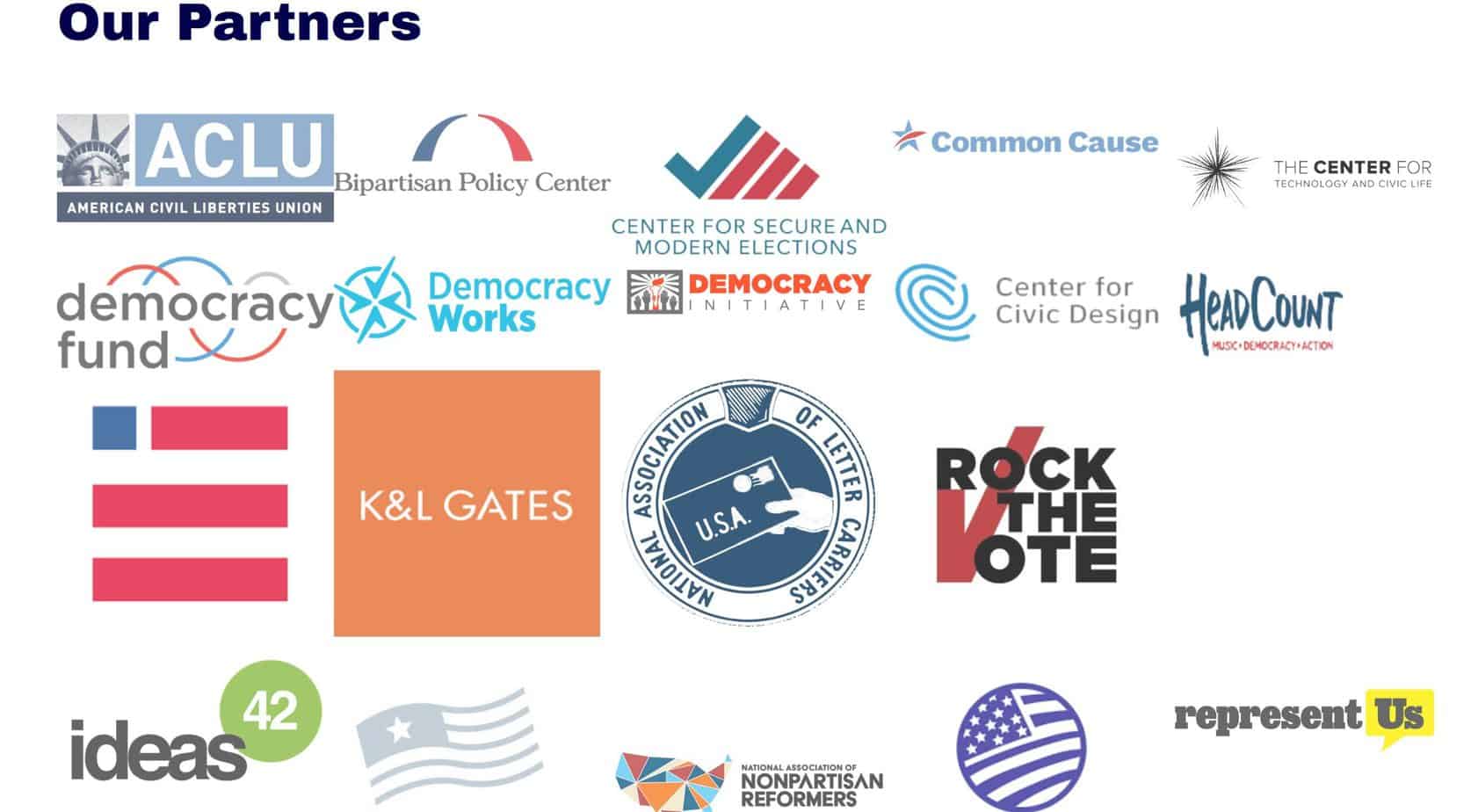
Spitzer-Rubenstein worked on election day for the National Vote at Home Institute, which lists as one of its partners The Center for Technology and Civic Life. In October 2020, Facebook founder Mark Zuckerberg and his wife announced that they had made “a commitment to CTCL to increase funding by up to $100 million beyond the $250 million already committed to continue their work to provide officials with the staffing, training and equipment necessary to make sure that every voter can participate in a safe and timely way in the election.”
Claire Woodall-Vogg, Executive Director Milwaukee Election Commission, who briefly misplaced a key election flash drive during the election, is touted on the website of the National Vote at Home Institute.
On March 9, 2021, after a follow-up story on the issue by a conservative website, Senator Eric Wimberger (R-Green Bay) called for an investigation into Green Bay Mayor Eric Genrich and his staff.
“This report indicates extremely concerning behavior from Mayor Eric Genrich and his staff,” Wimberger wrote in a press release. “The City Clerk was pressured by a partisan actor, the National Vote at Home Institute, who the Mayor’s Chief of Staff actively assisted. A private citizen, not affiliated with the City of Green Bay, and not a Wisconsin resident, effectively became the chief elections officer for Green Bay during a presidential election. They were allowed direct access to absentee ballots, and directed how, where, and when ballots should be collected. This is inexcusable and action must be taken.”
Wimberger was reacting in part to the March 2021 publication of emails first obtained by state Rep. Shae Sortwell (R-Two Rivers). Those emails cast more light on Spitzer-Rubenstein’s election-related activities. “Can we help with curing absentee ballots that are missing a signature or witness signature address?” Spitzer-Rubenstein wrote to Green Bay city clerk, Kris Teske on Oct. 7.
He also wrote the clerk in an email, “We have a process map that we’ve worked out with Milwaukee for their process. We can also adapt the letter we’re sending out with rejected absentee ballots along with a call script alerting voters (We can also get people to make the calls, too, so you don’t need to worry about it.).”
The City of Green Bay defended its elections process in a lengthy letter posted to Facebook. You can read it here.
It says, in part, that Green Bay “conducted the election in accordance with state and federal laws, with our legal department vetting the decisions being made…the election was administered exclusively by city staff. As part of the $1.6 million election grant award, the City received technical assistance from experts in elections, security, public relations and analysis. They provided additional input and insight, but never had access to ballots, computers, storage, equipment or the like… No ballots were ever in the care of custody of these consultants.”
Wisconsin state senator Roger Roth (R-Appleton) called on Green Bay Mayor Genrich to resign, writing on Twitter, “@MayorGenrich ceded his responsibility to safeguard the integrity of our elections to an outside, partisan organization and I am calling on him to resign from office immediately.”
Sen. Alberta Darling also called for an investigation, writing, “Local political leaders took outside money and let partisan operatives take control of the election process in Green Bay.” Darling’s press release outlined the following claims:
A Democratic operative had access to absentee ballots and given keys to the central count area before November 3rd.
Outside operatives sought to assist in correcting absentee ballots returned to the city clerk’s office in Green Bay.
Outside Operatives may have assisted Milwaukee with rejected absentee ballots.
The Clerk’s office made local political leaders aware of the frustrations and possible violations but was largely ignored.
Despite these complaints from the Green Bay clerk, the outside operators were given more control over the election.
Brown County’s clerk said Green Bay went “rogue.”
However, Assembly member Kristina Shelton (D-Green Bay) defended the city’s handling of the election, writing in part, “The administration of the November Election by the City of Green Bay was seamless. Election officials, including the Mayor and his staff, should be commended by legislators for their commitment to democracy.”
This is what else we reported in November:
Both Rubenstein, who is from New York, and Rivera-Wagner have expressed strong Democratic partisanship and anti-Trump positions. Rubenstein once wrote about fighting back against the president’s “dangerous” plans. Rivera-Wagner is a Joe Biden delegate to the Democratic National Convention who once organized a resist Trump rally and refers to the “Trump trickle down of hate” and uses a #ResistTrump hashtag on social media.
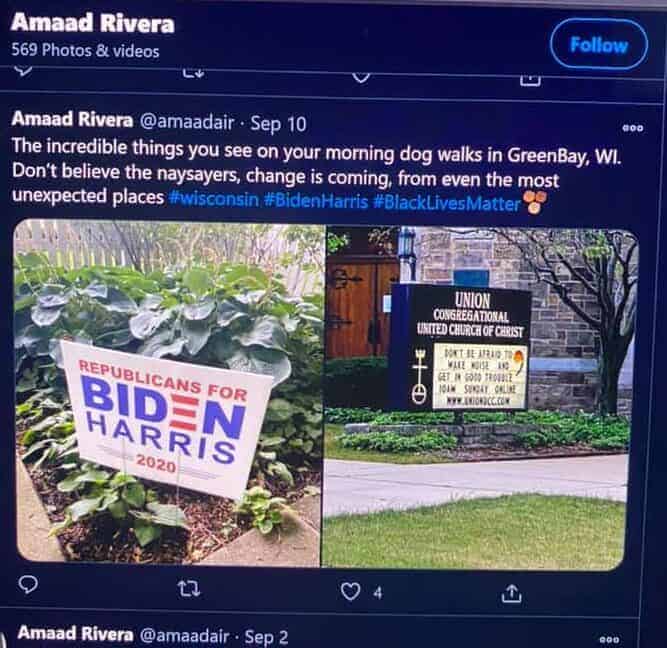
Brown County Clerk Sandy Juno and the observers say Spitzer-Rubenstein and Rivera-Wagner were interacting with poll workers who were processing ballots on election night. Neither man was certified as an election inspector. An attorney for the Wisconsin Election Commission advised Juno that inspectors, not consultants, were supposed to be making decisions about ballots.
“I let them know I wasn’t very happy about it,” Juno told Wisconsin Right Now. “He (Spitzer-Rubenstein) was at Central Count participating in the election with some of the people at Central Count. That was a concern. What kind of put me off was the fact he had a printer and a laptop at a table in there, and he was walking around with a cell phone; that’s not the type of stuff that should have been allowable in the Central Count location.”
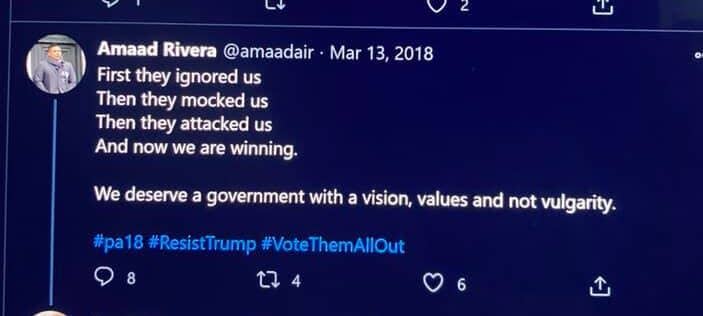
Rivera-Wagner is the community liaison to Green Bay Mayor Eric Genrich. The mayor is a former Democratic Assemblyman who penned a letter to President Donald Trump urging him not to show “bigoted rhetoric” in Green Bay.
For her part, Juno is a Republican who has shared posts on social media that are anti Joe Biden and pro Donald Trump.
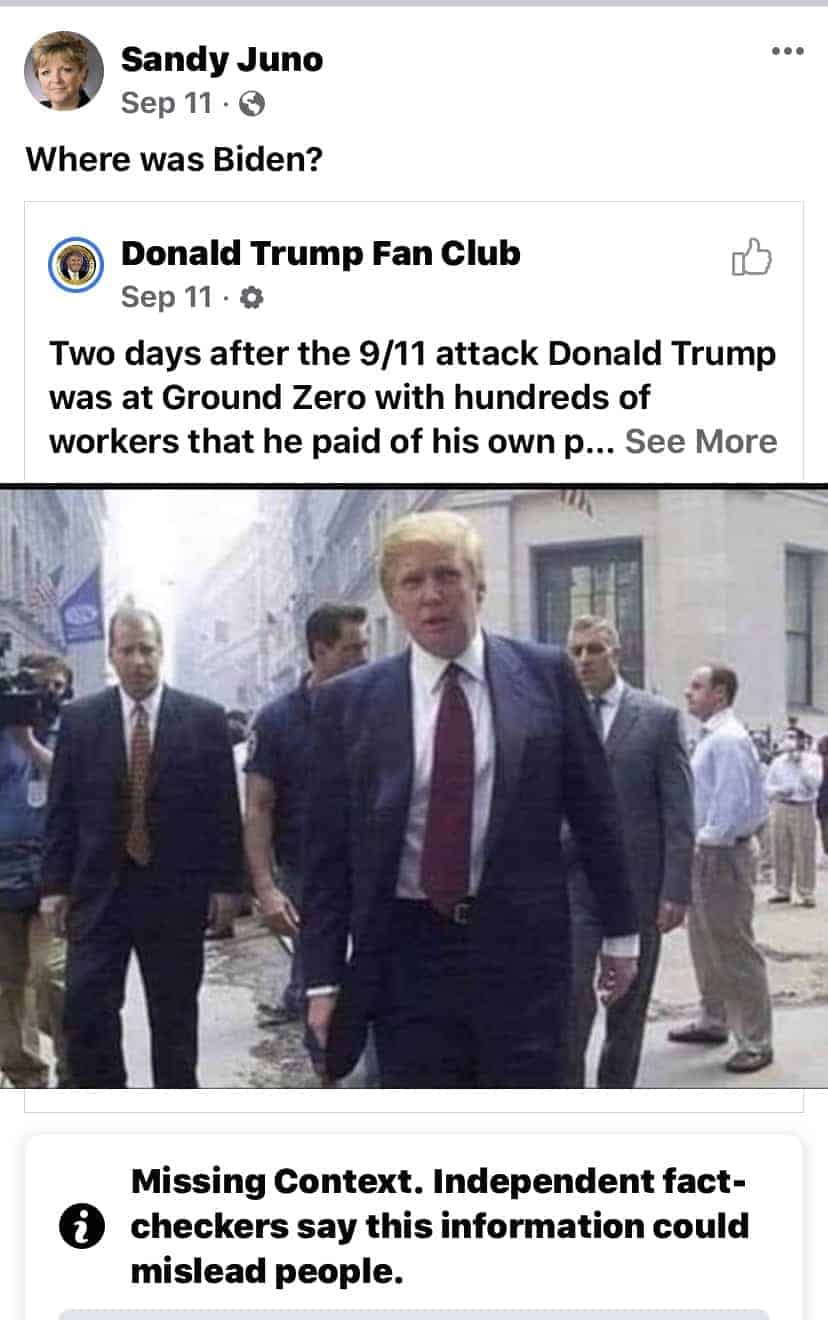
Green Bay is Wisconsin’s third-largest city and thus its vote totals played a critical role in helping former Vice President Joe Biden accrue a lead at the polls; President Donald Trump is contesting the Wisconsin outcome and seeking a recount. Trump won Brown County 53-45%. According to WBAY, counting continued until 4:20 a.m. on November 4 in Green Bay, which had more than 31,000 absentee ballots. Most City of Green Bay wards went for Biden.
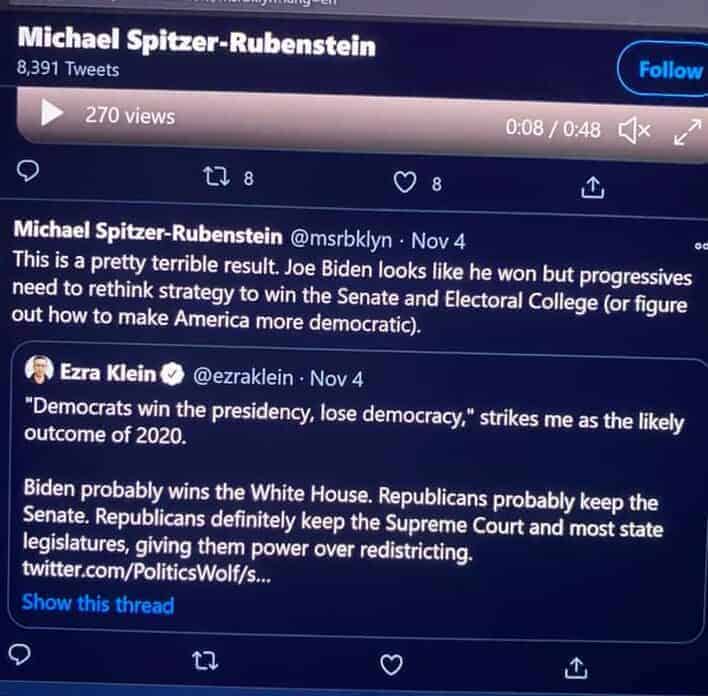
“Amaad works in the mayor’s office, and he seemed to be running Central Count,” Juno said. “He seemed to be a central person when you went and signed in. He talked to you; he seemed to be advising the people working at the Central Count tables giving them instructions how to proceed. He seemed all over the place.” As for Spitzer-Rubenstein, she added, “They took outside funding from a private organization and then they had a person participating in election process as a worker from the outside organization. I had an issue with that happening.”
We reached out to Rivera-Wagner, Rubenstein, and the mayor of Green Bay but didn’t hear back. After we inquired about his involvement at Central Count, Rivera-Wagner privatized his tweets. That wasn’t before we reviewed them and found a history of fervent anti-Trump and pro-Biden advocacy. He also shared a post about meeting Hillary Clinton and included the hashtag #StillWithHer. When President Trump came to Green Bay, Rivera-Wagner took to Twitter to tout Joe Biden and former President Barack Obama.
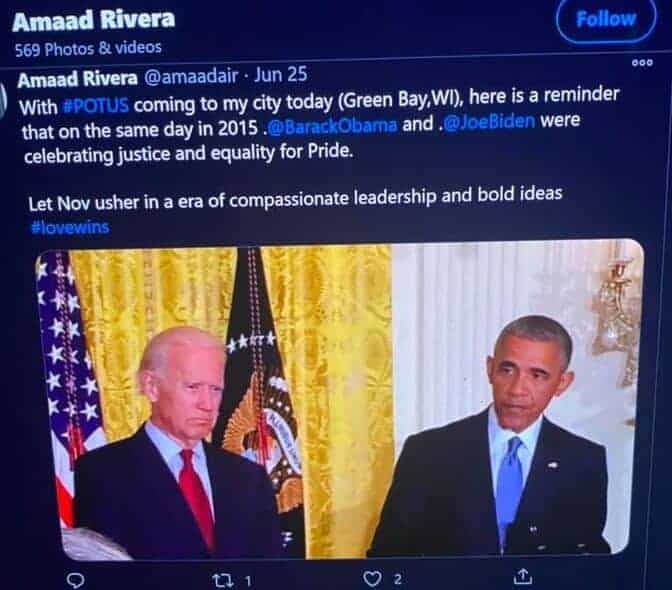
Rivera-Wagner was a delegate to the Democratic National Convention. He helped organize a resist Trump rally in Massachusetts, where he worked for a Democratic U.S. Senator.
“We are going to be fighting for equal justice until we can get rid of Trump,” he said in a speech at an anti-fascist rally.
“I was a passionate Warren supporter who is enthusiastically supporting Biden,” he wrote in his bid to be a Biden delegate. “I know that Wisconsin and the rest of the country needs us to defeat this POTUS in November and reset the positive power of the White House for everyone in this country. Winning is just the first part, as we work together to reshape what is possible and recreate new opportunities for our communities to thrive in the 21st century.”
On Facebook, Spitzer-Rubenstein has tweeted pictures of Black Lives Matter protests. He shared a story from Time Magazine headlined “meet the woman behind the push for mail-in voting” and indicated, “proud to be supporting Wisconsin election officials” with Vote at Home.
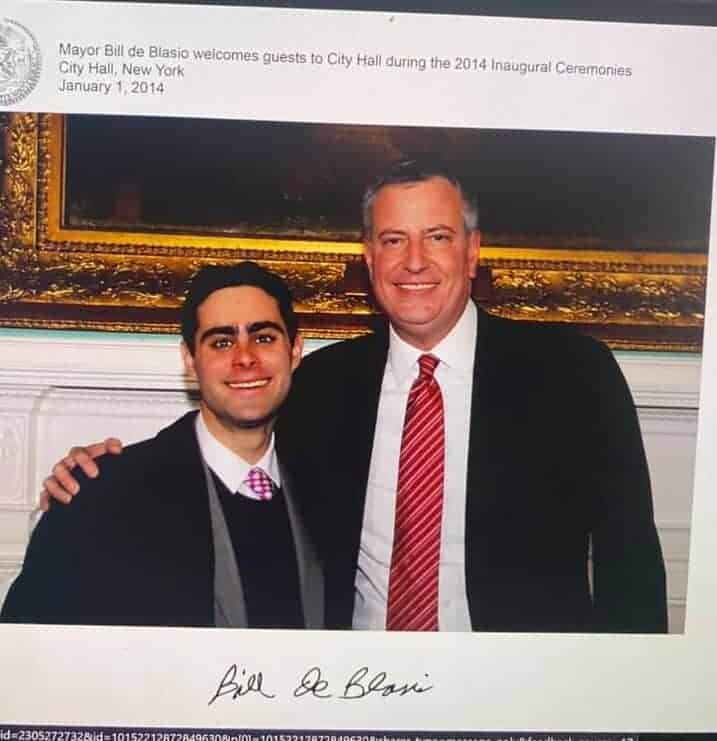
On Nov. 4, he wrote, “Joe Biden looks like he won but progressives need to rethink strategy to win the Senate and Electoral College (or figure out how to make America more democratic.)” He shared a photo with New York Mayor Bill de Blasio.
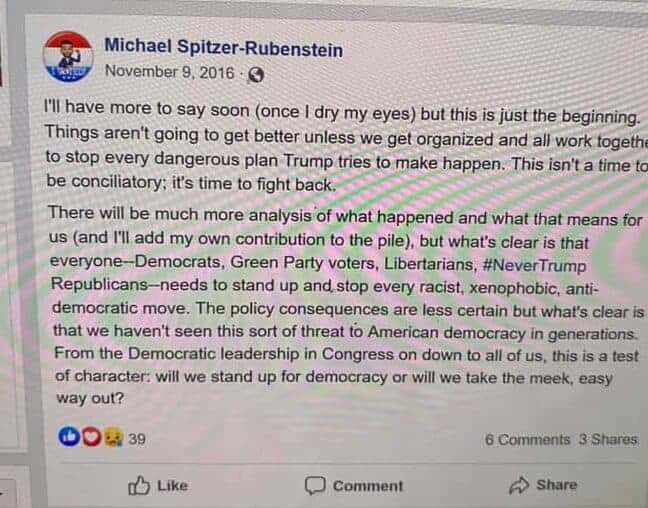
Shortly after the 2016 presidential election, he wrote, “I’ll have more to say soon (once I dry my eyes) but this is just the beginning. Things aren’t going to get better unless we get organized and all work together to stop every dangerous plan Trump tries to make happen. This isn’t a time to be conciliatory. It’s time to fight back.”
The mayor touted a live stream of Central Count activities on his Twitter page. However, as of November 10, it was still not available.
On LinkedIn, Spitzer-Rubenstein defines himself as “Wisconsin State Lead (Leadership Now Fellow) at National Vote at Home Institute.” That Institute’s website says it “works to remove legislative and administrative barriers to vote-at-home systems and educate the public on the benefits of voting at home.” Its board of directors includes Kathleen Kennedy Townsend, the former Democratic lieutenant governor of Maryland who is a member of the Kennedy clan; the former Democratic secretary of state of Oregon Phil Keisling; and former Democratic Michigan Governor Jennifer Granholm. The group says its “state leads,” including Spitzer-Rubenstein, “work hand-in-hand with elections officials on the ground to ensure they have the tools they need to make the 2020 election a success.”
Juno said she tried to call National Vote at Home Institute to figure out its donors, but they wouldn’t tell her. “It kind of tainted the process,” she alleged.
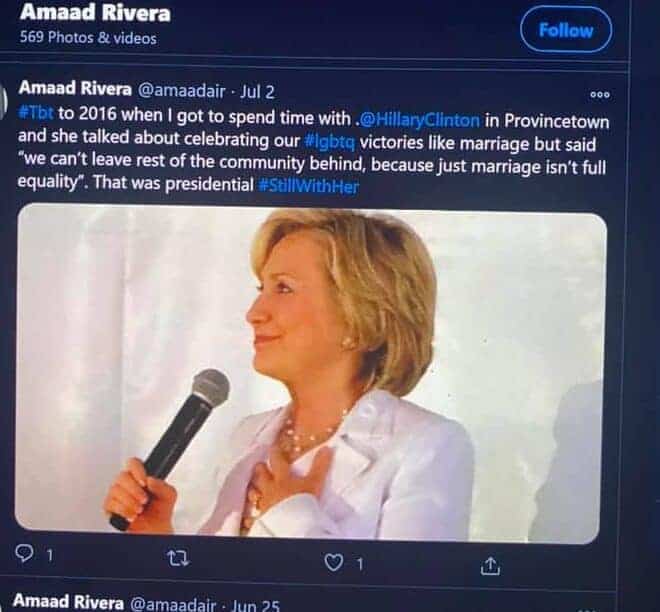
She said a breakdown started with the mayor’s office last April, when “we couldn’t get in the building. They weren’t returning our calls or emails, and they were making decisions we didn’t feel were the best decisions.”
What People Saw Unfolding at Central Count During the Green Bay Election
What she observed that night so upset Brown County Clerk Juno that she contacted a lawyer with the Wisconsin Election Commission about it. We obtained her email to that lawyer, and his response.
At 11:59 p.m. on election day, Juno wrote Nathan Judnic, an attorney with the Wisconsin Election Commission, about Spitzer-Rubenstein. “Nate, I have concerns about this person from an outside organization at the central county location for the City of Green Bay,” she wrote. “I observed that he has a laptop, printer, and cell phone (accessible) within the central count facility. Likewise, we were told he is an observer for the outside organization that gave them a grant and his position is paid for by that even though he’s from a different org. I observed him interacting with the poll workers and advising them on matters. I believe the central count location is tainted by the influence of a person working for an outside organization affecting the election. Please explain how grant money from a private outside organization and employee from a private outside organization does not violate election laws for free and fair elections?”

At 1 p.m. on Nov. 3, Judnic wrote Juno back, and said the commission had “several conversations with Green Bay leading up to today and are aware that they were going to be using consultants from some outside groups today.”
He added, “We’ve discussed the roles these individuals were going to be assigned and told them that while there is nothing that would prohibit the City of from using these individuals, the inspectors and the absentee board of canvassers working the location are the individuals that are to be making decisions, not the consultants. I have talked to Kim, the Deputy Clerk who was going to reach out to the central count folks and reinforce this guidance.”
However, two election observers we spoke to and Juno said they were concerned what they saw.
Judnic continued in the email to Juno: “I would certainly like to be made aware of issues or decisions that have been ‘tainted’ at the central count, I’m not 100% sure what you mean. As far as grant money, etc., I’m again interested if there are issues or decision that have been made that you think we should look into. I’m only really aware of the recent litigation related to grants given to municipalities which included Green Bay, Milwaukee, Madison and a couple others, but I was under the impression that case was dismissed and the US Supreme Court chose not to take it up prior to the election. Let me know if there is anything else I can help with on this.”

We asked Reid Magney, spokesperson for the Wisconsin Election Commission, whether it was illegal for people who aren’t election inspectors to interact with poll workers in the way described. “There are different roles at polling places and central count absentee locations,” he responded. “There are the election inspectors (poll workers) who are residents of the county, who have taken the required training and who have taken an oath. Then there are helpers who can do many other things like assisting the election inspectors with minor tasks like carrying things, cleaning, minor clerical duties, etc.”
The city clerk was out on leave so the deputy clerk took her place, which Juno claims no one told her. The deputy clerk told us the inspector was a person in her office, not Rivera-Wagner or Rubenstein. The board of canvassers is made up of other people who are involved in ballot counting after election day.
Mark Lamb, an election attorney from Washington State who worked as a Republican observer in Green Bay, told WRN, “Amaad was sort of on the floor moving around facilitating. He was definitely in communication with people making decisions on ballots, who were handling them. We want and confronted Amaad. He also seemed to be supervising things. He was very defensive.” He was concerned Rivera-Wagner was “easily identified as a partisan with a deep stake in the outcome.” He said he wouldn’t have cared if Rivera-Wagner was an observer, but he was acting as more than that.
Lamb was concerned about “the involvement of third parties who had an ambiguous role,” saying that a poll worker brought Rubenstein’s presence to his attention. “Spitzer-Rubenstein was absolutely engaging with people very directly on ballots. Actively engaging people on the machines, who were dealing with and handling ballots,” he alleged. Lamb said there was an “angry interaction” between Rivera-Wagner and another GOP election observer.

Andrew Kloster was another election observer for the GOP. He gave a similar account. “Amaad, I did witness him directing people, moving boxes, handling boxes, advising people on how to process ballots,” he claimed to WRN. “He was involved in all aspects, when the poll workers would raise their hand.” He said he saw “multiple individuals who were with the city government but not with either the clerk’s office or elections officials who were interacting with poll workers, both advising them how to make discretionary calls on ballot counting but also handling boxes and ballots themselves.” He claims that GOP observers raised objections about Spitzer-Rubenstein being there and were told by Rivera-Wagner that he was a “program technician.”
Kim Wayte was the deputy city clerk who says she was in charge of the election for the city. She wasn’t at Central Count the entire time because she had to help with election efforts elsewhere. She said an employee in her office was the chief election inspector at Central Count but didn’t want to speak to the news media. Of Rivera-Wagner, she said, “I think he was there to help and assist. He’s also a city employee. He wasn’t as far as I know doing anything we didn’t tell him to do.” When she was there, she said she didn’t see any “red flags” in his actions. She said GOP election observers weren’t supposed to talk to anyone but the chief inspector.
She stressed, “We don’t do anything party affiliated. I am against any party affiliation.”
She claimed that ballots are separated from the absentee ballot envelopes. Although she acknowledged that theoretically someone could see the ballot and envelope with voter’s name on it when separating them, she said, “I don’t think anyone cares” to look and added that “everyone signs an oath.”
Spitzer-Rubenstein “had something to do with the grant we won,” she said. Eventually, they switched him to observer status, she said. “He was assisting with flow. As far as I know he didn’t handle any ballots. He might have been going around talking to people he shouldn’t have, not sure.”
She said she asked Spitzer-Rubenstein to sit in a corner after learning the state had received complaints about him. “I told him to just sit down and observe,” she said, after receiving word of those complaints.
She believes the Green Bay election “ran the way it’s supposed to.”
Table of Contents


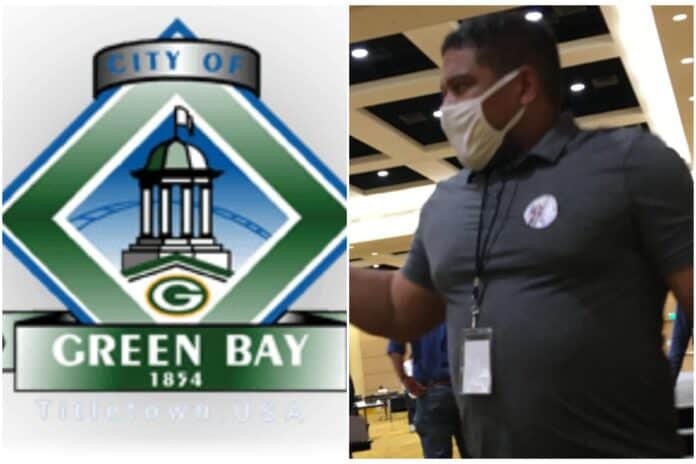







![WATCH: Elon Musk Town Hall Rally in Green Bay [FULL Video]](https://www.wisconsinrightnow.com/wp-content/uploads/2022/04/Elon_Musk_3018710552-356x220.jpg)



![The Wisconsin DOJ’s ‘Unlawful’ Lawman [WRN Voices] josh kaul](https://www.wisconsinrightnow.com/wp-content/uploads/2025/03/MixCollage-29-Mar-2025-08-48-PM-2468-356x220.jpg)







![Phil Gramm’s Letter to Wall Street Journal [Up Against the Wall]](https://www.wisconsinrightnow.com/wp-content/uploads/2025/03/gramm-356x220.png)











